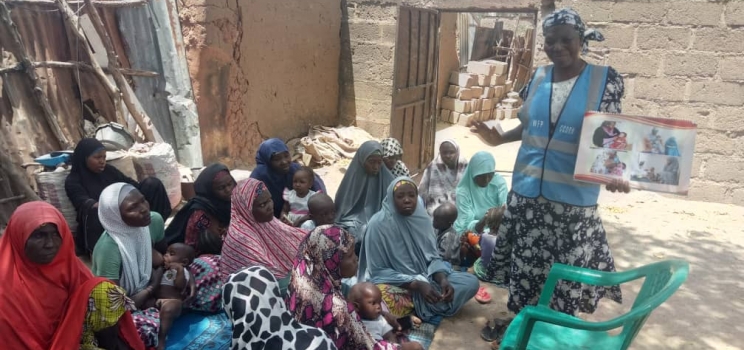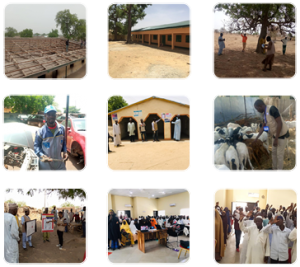The ideal infant and young child feeding (IYCF) practices during the first 2 years of life is of paramount importance as this period is the critical window for the promotion of health, good growth, behavioral and cognitive development.
With support from the World Food Programme (WFP), the Centre for Community development and Research Network (CCDRN) is heightening awareness among conflict affected families and communities in Yobe state, Northeast Nigeria, about healthy and safe feeding practices for young children.
Malnutrition contributes to more than a third of child deaths in poor conflict affected areas. WFP and CCDRN’s effort focus on improving nutrition during the critical period from a mother’s pregnancy until her child is two years old
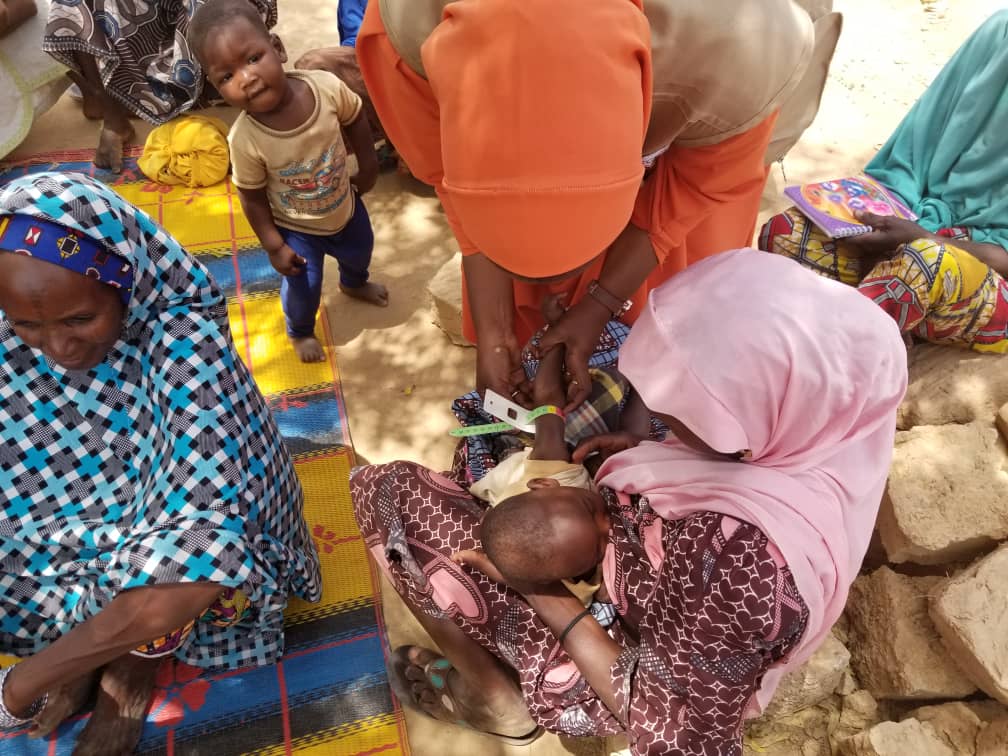
mid-upper arm circumference measure (MUAC), being used to detect a child’s nutrition status
In partnership with the United Nations World Food Program (WFP) Centre for community development and research network (CCDRN) continues to portray concern towards the health and well-being of infant and young children by training community nutrition mobilisers to support mothers in optimal and safe feeding practices, and mothers learn how to keep their young children healthy and well nourished.
In view of the gaps in Infant and Young Child Feeding knowledge, unhygienic environment and need to protect young children, pregnant and lactating women who are most vulnerable to diseases and malnutrition generally, CCDRN’s IYCF activity for the month of march, focuses on training Community Nutrition Assistant (CNA) and Community Nutrition Mobilizers (CNM) to provide adequate support to CCDRN Nutrition team in disseminating the World Food Program (WFP’s) infant and young child feeding practices/Community-based management of acute malnutrition CMAM messages, on nutrition and hygiene promotion of households.
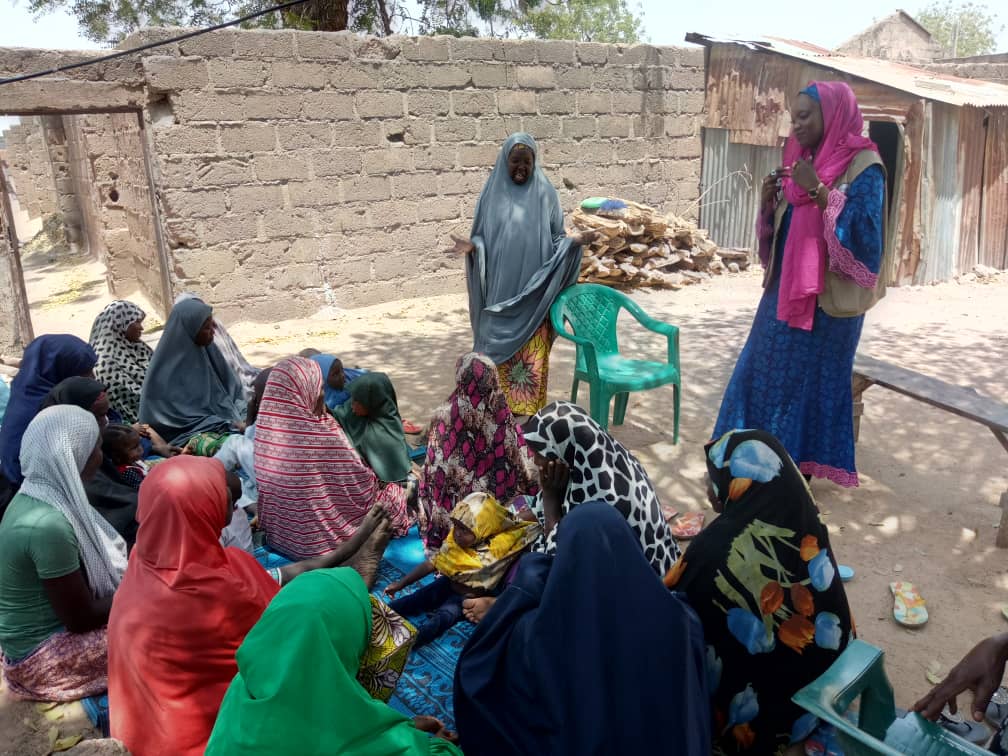
Community Nutrition volunteer engaging with mothers during IYCF follow up training
The rationale behind this training is to reach out to 100% of households in the target communities; using the skills acquired on IYCF/CMAM broad messages, owing to the fact that, behavioral changes are more likely to occur when peer groups talk and listen to the people around them who share a common culture, language in a geographical location.
The conflict in Nigeria’s three north eastern states of Borno, Adamawa and Yobe (BAY) continues to undermine social stability and economic development due to the scale of displacement, disrupted livelihoods and diminished agricultural production due to the protracted nature of the crisis, which has consequential impact on the food security and nutrition situation.
Saving lives has been WFP’s priority, especially in emergency situations. Because of their high nutrition needs and vulnerability, children are at a high risk of stunting and death when access to knowledge and best practices on how to manage their nutrition need is lacking. CCDRN has been implementing WFPs emergency food assistance across Yobe and Adamawa states, reaching mothers, lactating women and also using participatory methods to involve them in experience sharing, demonstrations and illustrations of some nutrition key drivers.
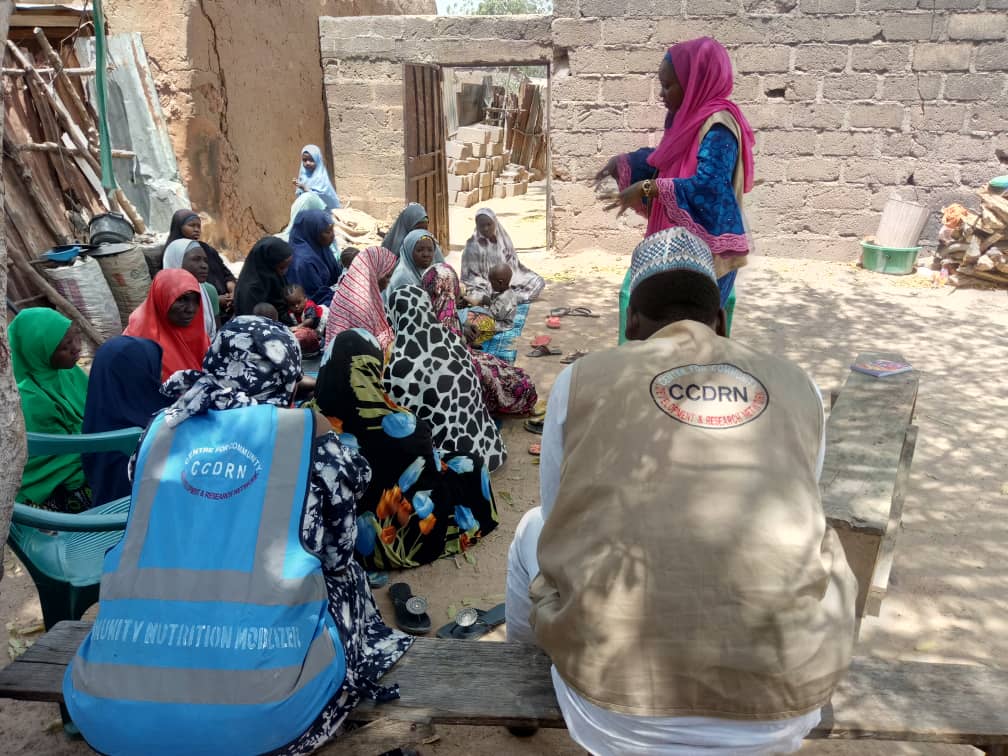
CCDRN’s Nutrition officer facilitating IYCF Training
The training covers Community-based management of acute malnutrition (CMAM), and its components, principles on Severe Acute malnutrition (SAM) and under nutrition. CCDRN, then proceeds to sensitizing mothers on importance of breastfeeding, complementary breastfeeding, how breastfeeding works for the child & mother, measuring of malnutrition. Mothers were given commodities and sensitized on its nutritional value, and the importance of maintaining proper hygiene in catering for themselves and their babies, proper breastfeeding, and also sensitize them on other nutritious food they can consume aside the supplements received through the intervention.
